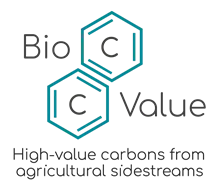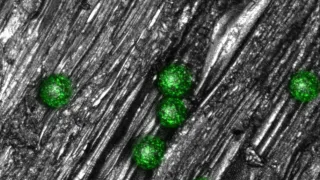VTT and LAB University of Applied Sciences joint project "BioCarbonValue" aims to develop alternative carbon materials to replace fossil-based carbon in high-value applications such as energy storage systems, biocomposites, and purification processes. Biocarbon (or biochar) production is a newly emerging industry that benefits climate and the environment while offering multi-billion euro business opportunities.
VTT Technical Research Centre of Finland and LAB University of Applied Sciences joint research project, BioCarbonValue, has received a positive funding decision from Business Finland partnership funding.
“BioCarbonValue will address the existing bottlenecks in the upscaled production and the use of biocarbons to replace fossil-based carbons in the selected applications,” says Research Scientist Esko Salo from VTT.
High-value carbons such as graphite, carbon black, and activated carbon are crucial for various products and processes across multiple industries. However, these carbons have long supply chains and are mainly produced from fossil-based feedstocks such as coal and oil. In addition, the EU and US classified certain carbon products such as graphite, as a strategic and critical mineral.
The global market size of graphite alone is expected to reach $28.33 billion by 2026. In addition, activated carbon is essential in various processes, such as ensuring the quality and purity of the air and water we use and consume. Furthermore, carbon black is utilized in various materials, such as electrically and thermally conductive plastics and biocomposites. The demand for high-value carbons is rapidly growing and driven by industry developments such as electrification, regulation, a growing population, and increased standard of living.
VTT has been increasingly researching the production and application of biocarbon produced from various forestry and agricultural sidestreams
Agriculture produces a significant amount of sidestreams that are currently underutilized and have unexplored potential for high-value biocarbon production. Moreover, the volumes are estimated to increase rapidly as field biomass will be increasingly utilized resource in the future. During past years, VTT has been increasingly researching the production and application of biocarbon produced from various forestry and agricultural sidestreams.
“For example, activated carbon produced from pine bark has proven to be just as effective in VTT's laboratory tests as widely used fossil-based activated carbon. In addition, preliminary tests on biocarbon produced from spent grain have shown highly promising results when tested as electrode material in dye-sensitized solar cells,” says Virpi Siipola, Senior Scientist at VTT.
However, despite these preliminary research results and demonstrations, lack of comprehensive data and uncertainties prevent biocarbon from being widely deployed on the market. In addition, the potential of biocarbons in biocomposites has not beed fully evaluated along with the use of agro-based cellulose. The project addresses the whole value chain - from feedstock sourcing to the end users of high-value carbons. By working closely with the industry stakeholders, the project aims to accelerate the market entry of alternative carbons by addressing both scientific and practical challenges.
BioCarbonValue is funded by Business Finland partnership funding and is part of ExpandFibre Ecosystem led by Fortum and Metsä Group. The project is co-funded by Fortum, Sumitomo SHI FW, Neova, Premix, PUHI, Carbofex, Carbo Culture, Fifth Innovation, and the City of Heinola. The total budget for the project is 1,2m€, and the project time is 2023-2024.








